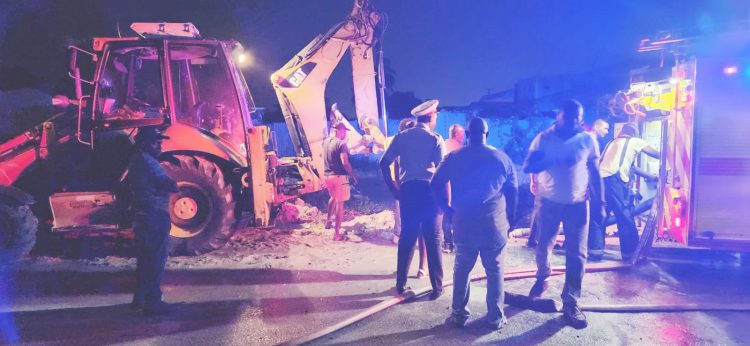Lamenting that Guyana Water Incorporated (GWI) workers, one week ago, had to work around the clock to fix a main on Aubrey Barker Road that was damaged by a contractor, its Chief Executive Officer Shaik Baksh underscored that contractors who damage infrastructure will be responsible for the cost of the repairs, and appealed to residents to promptly report incidents of this nature.
“We also have the issue where contractors are damaging our infrastructure in many areas where roads are being built and drainage and irrigation works are being done. These have affected our water supply, and in many instances, the contractors cannot be found. We are taking a very strong view on this matter, and all necessary action will be taken to ensure these incidents are minimised,” he said.
Speaking at a press briefing at GWI’s headquarters at Shelterbelt, Georgetown, Baksh said that the utility was working closely with the Ministry of Public Works, the National Drainage and Irrigation Authority and the Central Housing and Planning Authority to minimise, if not eliminate this problem which has been causing hardship to residents.

In addition to causing disruption and severe discomfort for households, significant water infrastructure damage exerts an extensive burden on GWI’s resources since it takes time and money to rectify.
In cases where damage has occurred, reports should be made promptly to GWI’s Call Centre on telephone number 227-8701 to minimise on wastage and reduced level of service at the earliest. GWI has already commenced billing contractors for damaging public water infrastructure.
Given the present El Nino situation affecting the country, the need for prompt reporting of damage to public water infrastructure cannot be overemphasised, he added.
“We want to appeal to residents to be more prudent and cautious in the use of water during this period so that everyone enjoys an adequate level of service,” Baksh said.
GWI is working collaboratively with the Civil Defence Commission, the National Drainage and Irrigation Authority and other agencies in monitoring the extreme dry weather and visits have been made to all the regions to get a firsthand look at the situation on the ground.
The utility has also been working to improve the response time to residents’ complaints.
“We have also read the riot act to managers, supervisors, and staff to ensure they respond promptly to complaints from residents, not only with regard to water supply but other areas of concern,” Baksh stated.






